Andy Farrow will be a name familiar to many of you; He’s the head honcho at Management Company Northern Music, the outfit who keep a firm hand on the tiller of the careers of such Sentinel Daily-approved acts as Paradise Lost, Opeth, Anathema and Grave Pleasures. Initially we sat down for a chat about the new PL album Medusa, as I was keen to explore the manager’s role in getting a project like that up and running from start to finish. As ever with a man whose passion for the music industry is palpable, the conversation morphed into a wide-ranging overview of the way a management company works in 2017. Andy’s got a lot of wisdom crammed into that youthful-looking head, and any band hoping to make their way in the music industry should take heed of the man’s words…
So, the time comes, the band is ready to record, they come and tell you. What, as a manager, is your role at that point? “Well, it’s not quite like that, the band don’t tell me they’re ready to record. But you do have to give them some structure, otherwise time slips away. They might say ‘oh we want to do an album here’ – but you have to think now when is the best time to release an album? And that’s changed a lot. Timing is very important – whether you’re chasing chart positions et cetera. All of that will be discussed. Also you need to speak to your label – what other releases have they got planned? When is the optimum time for release? Record labels these days don’t have the budget to do so many promo tours, so sometimes it makes sense to perhaps play a few festivals ahead of the release of the record. There’s often a lot of press at the festivals, so you can do a lot of your up front promo there, save a bit of your marketing money which you can spend on other things. Obviously the most important thing is the whole touring/merchandising angle, so you have to think ‘when do we want this released?”
Timing is everything then? “Yes. For example if you release a record in May or early June, the agents will say ‘you can’t do the festivals this year – there’s no buzz on the band, the album hasn’t been out long enough. So basically it’s about sitting down, and saying ‘right, we need to have something out by such-and-such a period’, checking with the label to see who else they are releasing at that time because you don’t want competition, and then putting in a timeline. Depending on the label, around three to four months prior to release you have to submit everything. The mastered album, artwork, photos, everything, to give them time to prepare for release. I personally think that’s too long, So timing is important – on the one hand you have the band saying ‘yes, we’re ready’ but it’s also a matter of keeping their business going so it’s not too long between album releases, so you have to look at when you want to release it. If you release an album, as a metal band, in the first week of January you are probably going to chart really high, because all the fans will buy it. Conversely you don’t want to be going much after late November because you’re getting into the Christmas market and there’s too much competition. If you put it out in the Summer you’re missing the festivals, the companies in Mainland Europe tend to take long holidays over that time… you have to bear all these things in mind. So it’s a much bigger thing than the band saying ‘we’re ready’, if you see what I mean”.
I do indeed. So, all that being said then, if a manager has a stable of bands like you do, does that make it even more complicated for you in that you don’t ever want to be working two bands at the same time? Do you need to keep their output staggered? “Possibly to a certain extent although we don’t really look at it like that. The way things work at Northern Music is that I have day to day managers working with all the bands, although it’s not a one-per-band thing; Vicky Langham who does Paradise Lost also does some other bands too. But it is important for us I suppose to stagger our bands, but not so much as the label. Looking at it as a management company if you have a couple of bands out at the same time you can always package them together on tour; if they are on different labels it becomes interesting. Different labels have different marketing plans so if you have two bands together on tour you can pull the labels’ marketing plans apart to see what’s done differently. From a workload perspective the work isn’t getting a band into the studio, it’s when release comes. Promo trips, looking at marketing, key territories, then setting the tour up. Although that’s sometimes done way before the release of an album. You make a good point, but we can use it to our advantage if we package our bands up for touring”.
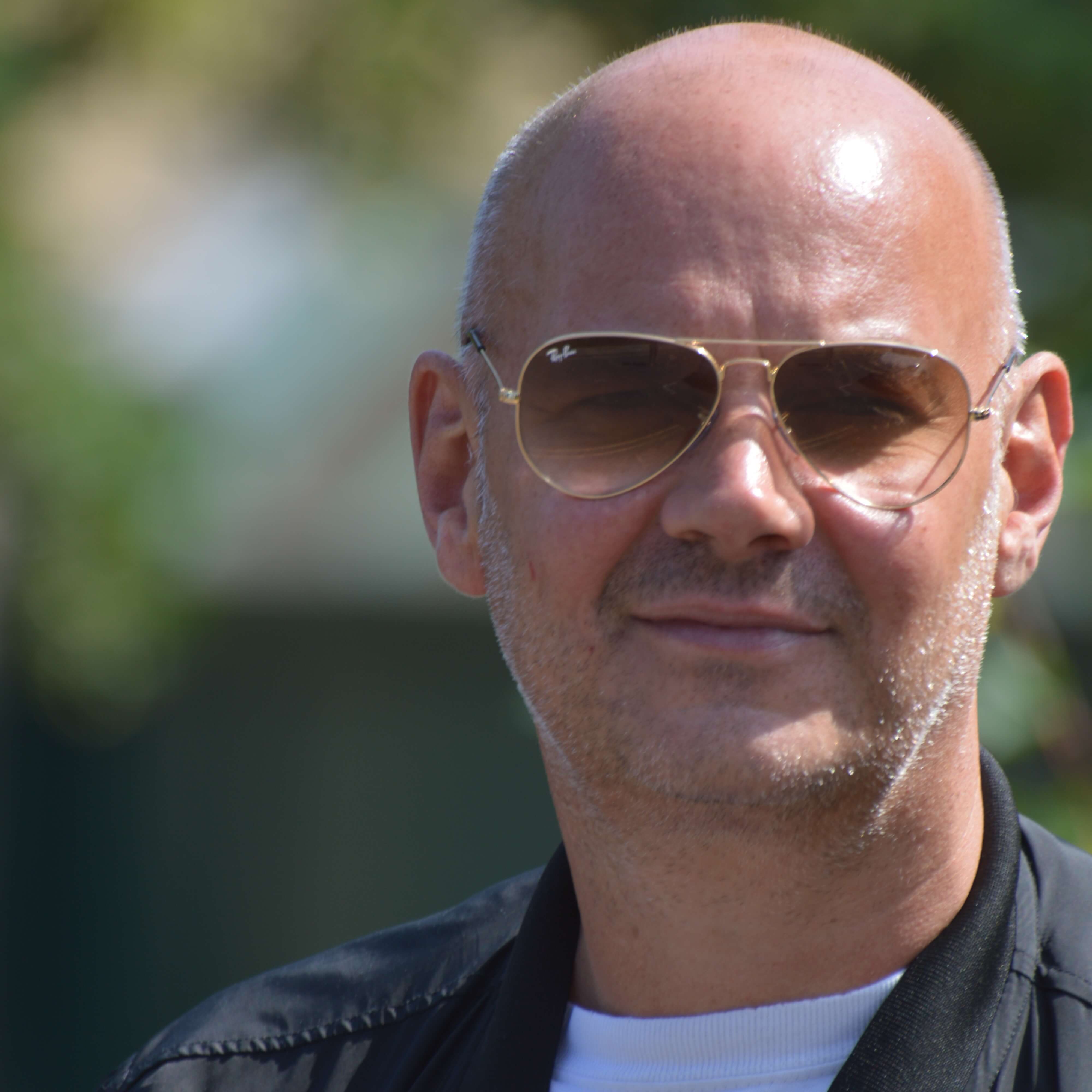
So let’s talk about getting the band into the studio – If you have a band that is, say, fifteen albums into their career and are comfortable with certain studio surroundings, do you let them go there even if you think you can find somewhere better or more competitively priced? “Well, we don’t let them go where they want! What happens these days is that most of our bands have license deals, whereby they own their own masters but license them to a label for ten to fifteen years; this is similar to a record deal in that we get an advance, but we are in control of the budget. In the old days of the record deal it was the record company who booked the studio and the producer and oversaw the budget. Now we do it as an all-inclusive deal. This means as a manager, if a band gets a hundred thousand Euros, or pounds, whatever, and spends a hundred thousand, technically there’s nothing for the manager to earn from the advance and there’s nothing left for the band to live on. So you have to educate the band on the kind of deal they have and what is realistic as far as studios and producers go. In the old days, with Paradise Lost for example, on an album like Draconian Times we were in Ridge Farm Studios in Surrey – with a swimming pool et cetera – and that was twelve hundred pounds a day (that’s over two grand in today’s money – Ed). These days you would never spend that kind of money. Realistically a band should spend around thirty five percent of their total advance on recording an album. Because before they go in there’s management commission to come off the advance and they need money to go into their companies on which they can live. So we tell them to look at studios, but you have to also keep in mind how a band records – do they want digital, do they want analogue? A lot of bands that we manage like the old school Neve desks. There aren’t many studios with those! Swedish bands seem to be able to make home recorded albums which sound really good but are cheap to record. So it’s more of a case of if a band is happy in a studio and I have a relationship with that studio and can get a good deal then they can stay there. For example Opeth have done their last couple of albums in Rockfield in Wales. The way they approached recording was to go in fully rehearsed, tracked the album live, did the overdubs and mixed it very cheaply, whereas a band like Anathema, without going into detail, spent an absolute fortune by using an old school approach. With Paradise Lost we had Jaime Gomez Arellano producing the record, who has done some other bands for us. He’s got a residential studio, we’re friends, we were able to cut a very good deal. What was happened with Paradise Lost’s career, if you look at it was in the early days they used Mags at the Academy Studios, then when I took them on for management I introduced them to Simon Efemy, who at the time had only really done Diamond Head and was more of a live engineer, but we had success on those albums, then we moved on to Sank, and then we’ve moved through. But generally with bands they might do a couple of albums with a producer. Going back again with Paradise Lost they did a few albums with Swedish producer Jens Bogren, who I manage. He’s a great producer but he gets a very ‘Swedish’ sound, very crisp, and bands need to think about what sort of sound they want”.
Yes. You don’t want to end up with an album that sounds more like the producer’s record than theirs. “A lot of bands now seem to be going for a more organic, seventies kind of sound, and Gomez is set up – he’s done bands such as Ghost and Ulver– for that kind of work. Ages ago everyone got caught up in the ‘we have to have a big name producer, we’ve got to have this big mixer… but at the end of the day, unless you’re some sort of huge band it doesn’t make a big difference. Americans would say ‘you have to have this guy to mix it for radio’ . It depends what kind of band you are, but records don’t sell as much any more, budgets are not as high, the producers, the mixers, their managers – everybody has to get real about how much they are going to charge. I’ve had bands using huge producers spending big money and it just doesn’t make sense. The other option there is to offer points, or royalties, on the album to a producer”.
So you need a few different skills to get this done. “It’s a mixture of economics, getting somebody who will get the right sound and choosing the right environment. Personally, I’m all for residential studios, where a band goes off to the middle of nowhere. They have a lockout, they eat there… I’ve had bands recording in London and there are always distractions. It ends up costing a fortune. In England you can get good residential studios for four or five hundred pounds a day. The band can live there, they are a unit, they are away from distractions, they can get things done quickly. And with today’s budgets, unless you’re huge like Metallica, there isn’t the money to be spending months doing albums. These days bands are often making albums in three weeks including mixing”.
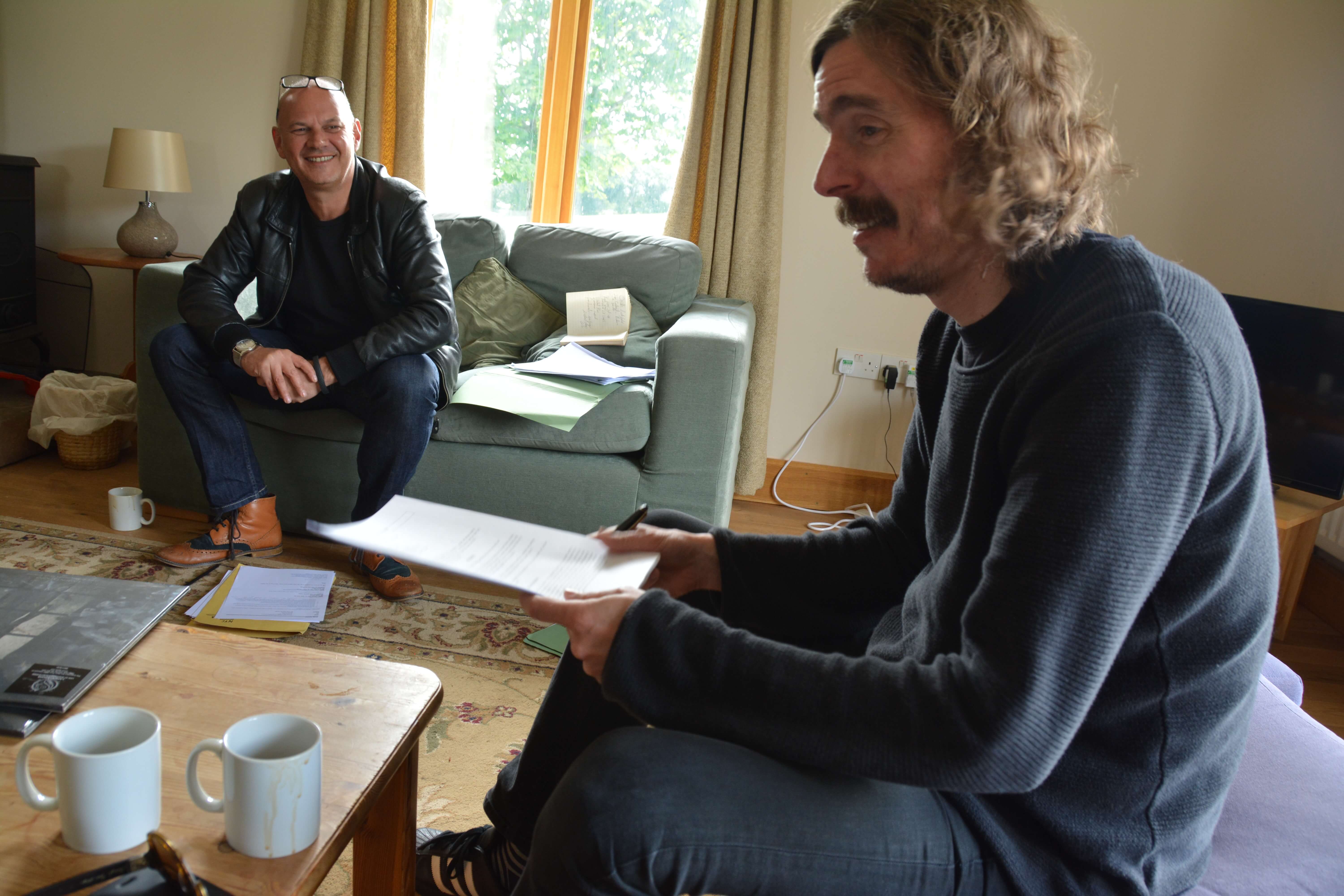
We know that record sales are contracting, and so therefore everything else concerned with the production of an album goes has to go the same way. So maybe the money that was being in part spent on making records goes elsewhere. In the last couple of days I’ve seen pre-release mailouts from bands offering as many as sixteen different album/tee shirt bundles to entice fans. What’s your opinion on bundling? “I think bundling is very important because these days there’s not much retail. Obviously in Australia you have places like JB HiFi, in the UK we have HMV but they only take so much stock. The thing with bundling is that if you go to online sites, and give them something exclusive like a certain vinyl colour, you can use bundles and exclusive formats to get yourself in the charts. You Me at Six went to number one in the UK by offering four different exclusive formats to four different online direct-to-consumer sites. So it is important. The other thing with bundling the album with a merch item is that you have to be clever. If you just say ‘here’s a tee shirt’… in a lot of deals record companies will ask for two merch designs, one of which will be the album cover. That’s understandable, but you have to keep that as it will be the biggest seller. With Opeth’s Heritage album I came up with the idea of issuing a Gold coin with the album, which was very popular and sold out quickly. Apparently one of them is in the British Museum now! A lot of labels offered things like Dog Tags. But you can’t just offer rubbish items. For instance, in Germany charts are compiled on value of sales rather than unit sales, so you have to have a deluxe version of the album if you want to get a higher chart position. With Paradise Lost for the Medusa album we’re doing a ‘snakeskin’ cover box set. It’ll be expensive. Retail shops won’t sell them, so you have to look for an online, chart-registered shop to sell it, and then push people towards those outlets. So bundling is important, but it’s not just the bundle, it’s the format”.
I remember having four or five different copies of UFO’s No Place to Run in differerent colour sleeves. Metal fans like that sort of thing don’t they? “It’s great for metal and prog bands, because their fans are dedicated, and they want different formats. You also get collectors who buy up whatever’s available and sell it on. But by formatting I also mean physical or digital copies of the album. Anyone can sell digitally, but in key markets I want to see some physical. The physical to digital split is still about 60-40 in favour of digital, but in metal and rock it’s more than that in favour of physical. It’s really important for our income that we have physical formats available in those territories. Moving forward, bands are looking at linking buying the show ticket, the tee shirt and the album all at once, and selling product on the road is now more and more important. Fifteen years ago, unsigned bands would sell CDs at gigs and it was seen as being not particularly cool. These days in the UK (where you have to pay to register) and the US these sales count towards chart placing. With Opeth’s last album, to get a high chart placing we did instore appearances and we toured on the week of release. With Paradise Lost this time around we’re doing a gig in Stuttgart on the first of September – when the album comes out – and at that gig we’ll have a special event shirt that you’ll get if you buy the album. I’m trying to get a number one for the band in Germany by doing things like that. The other way to add value to this at no cost to the band is to get them to sign items. A good way for us to lever a good deal out of labels is to refuse to sign anything if they don’t offer us a good deal on stock items!”
Obviously this way of working is the way ahead, and up-and-coming bands are comfortable to work with it. But do you find older bands perhaps a bit resentful about the amount of actual work they are now expected to do just to sell a record? “Yes. Opeth for instance say ‘fuck Facebook, we don’t want to be on it’ – and they’ve got one and a half million followers! They are happy enough for us to do it for them. Some of the older bands I manage definitely feel they need an air of mystery, and you also don’t want to be seen as using social media to over-sell. At one point Opeth had two books out, action figures… people were saying ‘when are you doing an album?’ but music can be stolen and a band has to have a business model to survive. Record sales are probably only twenty to thirty per cent of a successful band’s turnover, and it’s all the other things that make up the shortfall. Young bands are a lot more social media savvy, young bands are using Snapchat – I couldn’t imagine any of my bands using Snapchat- bands might want that air of mystery but the reality is everything gets out on the internet. You do a bad gig and some kid will film it on their phone and it’s up there. We have a remit to show bands how they can help themselves with this, but some of them don’t really want to. Personally, if I was in a band and I had a fanbase, I would be all about direct-to-consumer and I would engage with those fans. If you are a big band you are a brand, and you have to know your fans, engage with your fans and find out what they want and then aggregate that fanbase and monetize it. It’s not about ripping fans off. If you’re at a VIP meet and greet and you’re an arsehole, to that fan it’s over. So bands have to do much more – they can choose not to. But they have to step up”.
Like I said, take heed…
Paradise Lost will release Medusa through Nuclear Blast on September 1st.


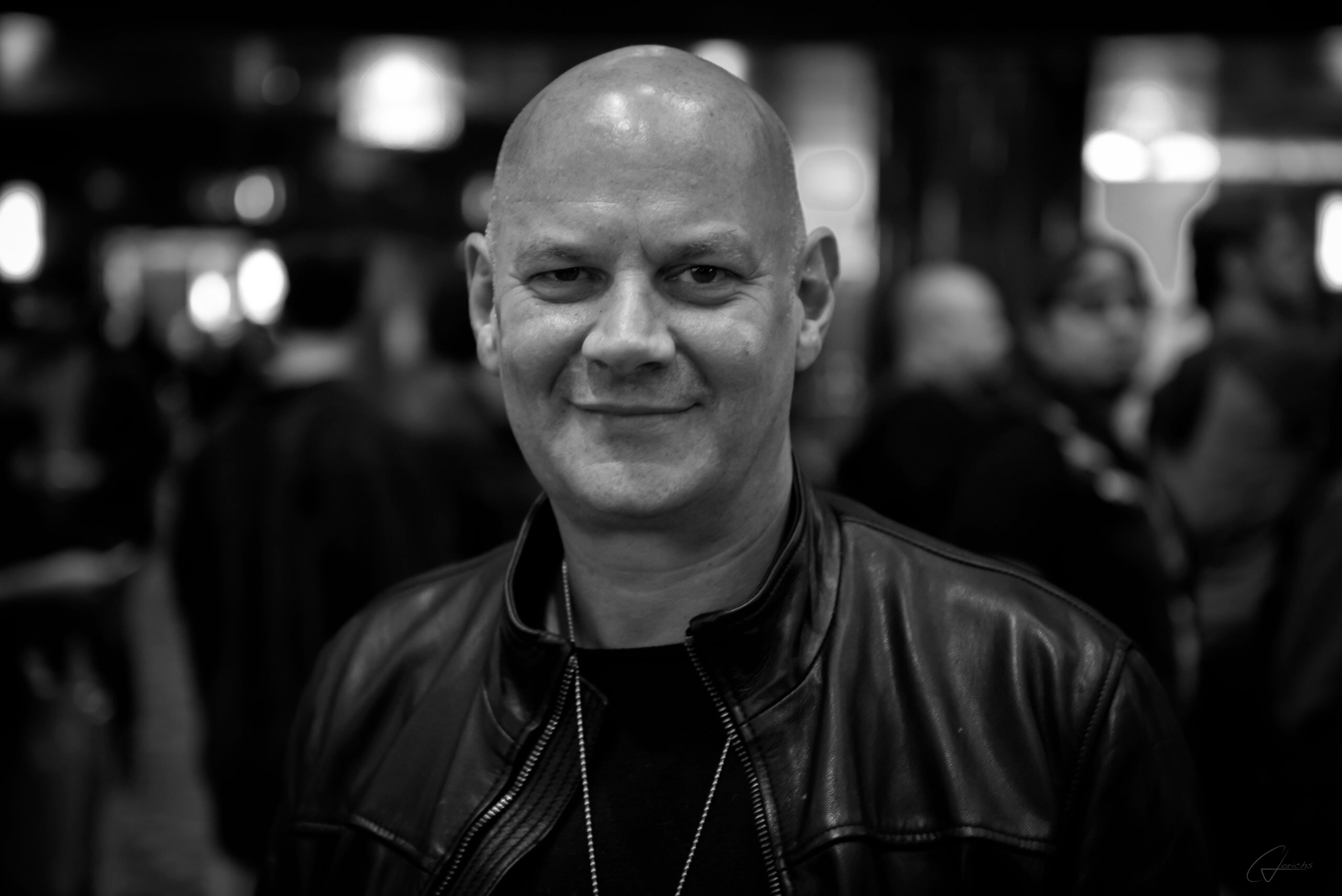
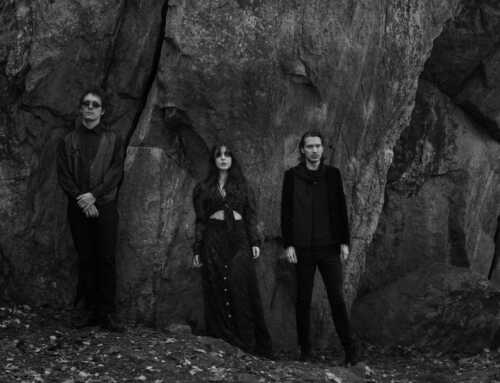
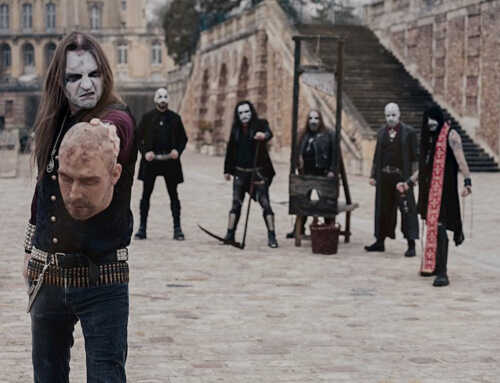

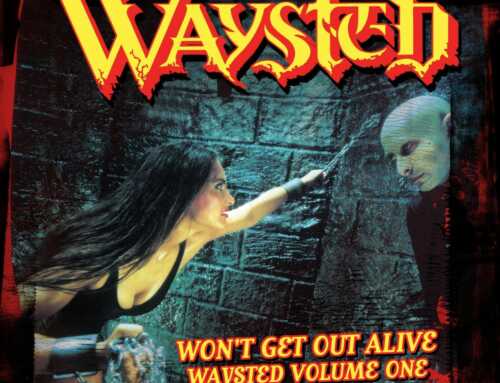

Leave A Comment